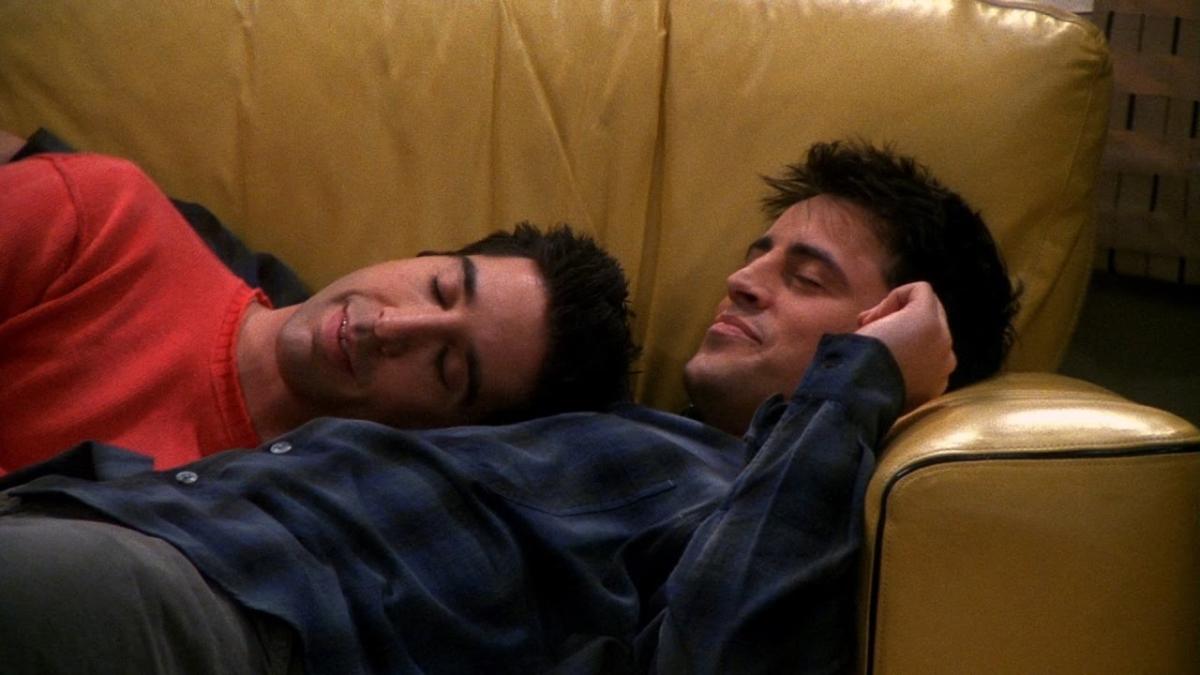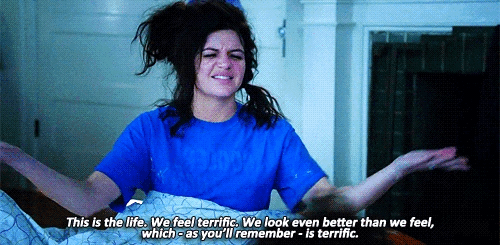
It’s no surprise to anyone that a lack of sleep may make you cranky and unbearable to loved ones, however, how severe are the effects of sleep deprivation? If you’re a young person who’s still blossoming into a fully-fledged adult (don’t do it kids, adulthood sucks), a lack of sleep can be particularly damaging to your mental health. Obviously, sleep deprivation across all demographics is hardly ideal, so we’ve gathered some facts and tips to get you in the right headspace.
Trigger warning: The recommendation to nap less is mentioned. Before you whip out pitchforks, knives and various other instruments used to inflict grievous bodily harm, hear us out.
A graph composed by the National Sleep Foundation has noted just how much sleep is recommended for each age bracket, with adults between 18 and 25 requiring around seven to nine hours of rest.

Interestingly, too much sleep is also not advised, so to all of those adults who claim to need 16 hours of sleep ‘because science says so and limbs will be torn if those 16 hours aren’t reached’, you may be misinformed. Sorry.

Firstly, let’s run over a familiar scenario, one we’ve all experienced. We decide to sacrifice a few disposable hours of sleep in favour of downing litres of Why-Am-I-Like-This flavoured ice cream, or to analyse the overly complex narrative of The Emoji Movie, only to wake up looking like a stale ham sandwich. For some lucky few, a lack of sleep has a minimal effect on their appearance, but for most of us who can look visibly tired, having to mingle with the public can become a daunting task.

Vanity reasons aside, young-gun May Lyn noticed that her mood was heavily dependant on the level of sleep she obtained the previous night.
“I would sometimes notice that I would get a little bit more erratic, or a little bit more irritable when I didn’t get enough sleep…I noticed on the days that I did get a lot more sleep, I was able to focus a lot better in class and I was able to take notes a little better and work on my assignments a little bit better and all that kind of thing.”
As to how she pinpointed the link between her sleep and her mood, May Lyn notes: “I think it was mainly just self-reflection because I would notice every now and again when people would say, ‘Oh, you seem a little bit crabby today,’ and I was noticing it was on those days when I was feeling particularly tired.”
Can we please just take a second to point out how absolutely infuriating it is when people comment on your mood. ‘Yes, Janet, I am a bit annoyed today, thanks for pointing that out.’ *Proceeds to add ‘Janet’ to the increasingly long Shit List*

Sleep expert Michael Gradisar, from the National Sleep Foundation (remember, the organisation that put together that professional AF graph? Cool, just checking) suggests that sleep (or lack thereof) can have an adverse effect on youngsters’ short-term memory, ability to handle emotions and stressful events and can eventually lead to depression.
“…if we have this stressful event occur, if that night we get really good REM sleep, then we’re more likely to be able to process that emotion a lot better. And it doesn’t seem to be that the effect happens immediately but over successive times of sleeping well we seem to process that emotion and recover better. So these are some important reason why certain aspects of our sleep are very helpful, especially for our mental health.”
So, in order to get a reasonable amount of z’s, Gradisar suggests the following –
- • At least an hour before bed, transition from interactive media (video games and internet) to passive media (TV)
- Reduce the brightness of your phone and computer screens at night. Functions like Apple’s nightshift mode work really well.
- To help wind down, do a short mindfulness exercise. The free Smiling Mind app has a variety of short meditations to try.
- Try to sleep for a similar amount every night – an extra hour is OK every now and then, but any more can confuse your body clock.
- If you need to get up during the night try to avoid turning on bright lights and hop back into bed quickly.
- Avoid caffeine at least six hours before you go to bed.
- If you can, avoid napping during the day.

Before everyone freaks out at the thought of a nap-less world, think back to all the times you’ve had a nap to avoid your very real obligations, only to wake up four days later in Vanuatu with Jeff telling you that you’ve been voted out of Tribal Council. Yeah, exactly. It happens ALL OF THE TIME.
So let’s all just focus on sleeping when it’s appropriate and giving our lil ol’ minds a rest.
If you’re still having trouble sleeping then these tips from headspace can give you a hand.



